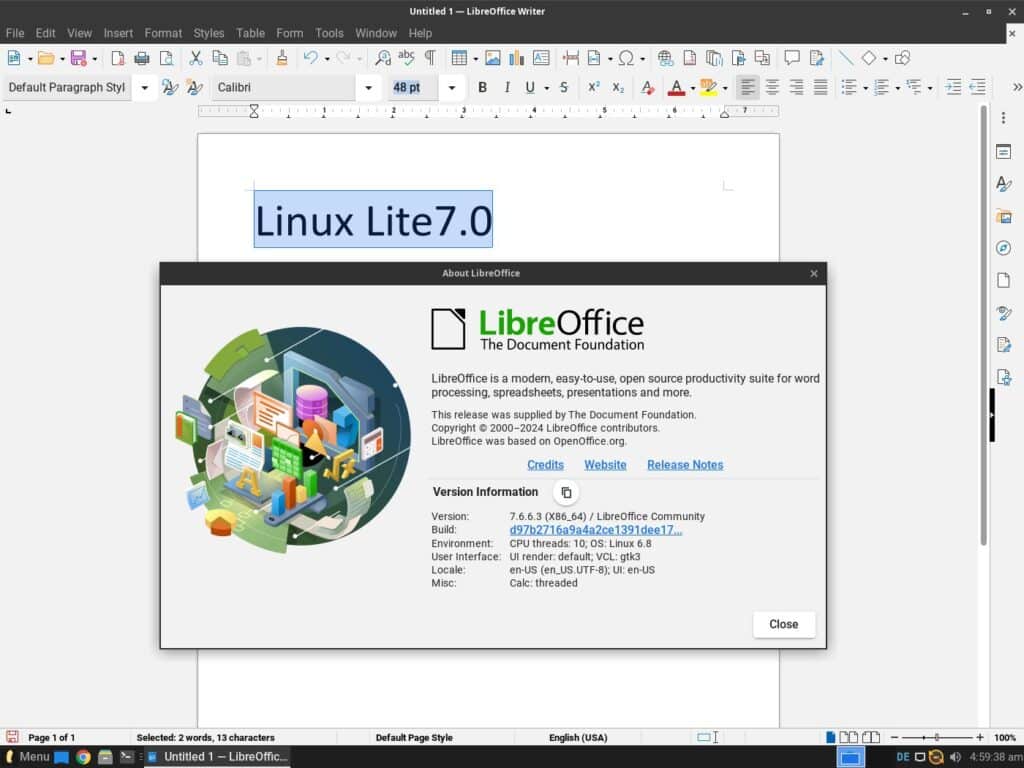LibreOffice, the flagship office suite of The Document Foundation, has issued a renewed and forceful critique of Microsoft’s file format strategy—this time aimed squarely at Office Open XML (OOXML). The open-source project accuses Microsoft of deliberately designing OOXML to be “artificially complex”, effectively using it as a technical barrier to interoperability and a long-term vendor lock-in mechanism.
For system administrators, CTOs, and infrastructure architects, this accusation highlights a strategic challenge that extends well beyond document formatting. It touches core concerns around digital sovereignty, maintainability, and the freedom to operate in hybrid or open environments.
Technical complexity as a strategic weapon
LibreOffice claims that OOXML, despite its ISO standardization, is riddled with inconsistencies, incomplete specifications, and legacy behaviors that are nearly impossible to replicate without reverse engineering. While Microsoft advertises it as an “open standard”, its actual implementation appears designed to discourage full compatibility from outside competitors.
To illustrate this, The Document Foundation uses an apt metaphor: “Imagine a public railway system where anyone can build a train, but the signaling system is so complex and undocumented that only the original manufacturer can run it effectively.” The real danger, they warn, is that users—be they individuals, businesses, or governments—often don’t realize they are locked in until costs rise or functionality becomes restricted.
This results in technical and operational dependency on Microsoft Office—even when open alternatives exist.
Responsibility also lies with the IT sector
LibreOffice doesn’t place all the blame on Microsoft. In fact, it acknowledges that IT decision-makers have enabled this dominance by prioritizing short-term compatibility over long-term freedom and sustainability. “The alternatives have always been there,” they argue, “but most organizations failed to act.”
From an enterprise IT perspective, this critique carries weight. Maintaining support for OOXML often involves licensing constraints, increased operational costs, and limited flexibility when integrating with open platforms or automated document workflows. In contrast, adopting open formats like ODF (Open Document Format) not only enhances interoperability but also aligns better with public procurement policies in many countries.
A new momentum for Linux and LibreOffice
LibreOffice’s criticism also aligns with the broader backlash against Microsoft’s recent Windows 11 strategy. The company’s decision to phase out support for Windows 10 has been seen by many as a way to force hardware upgrades and consolidate telemetry-heavy licensing models.
In this context, LibreOffice promotes Linux + LibreOffice as a powerful alternative—especially for organizations already running Linux on servers or seeking a more transparent and customizable desktop environment. This shift is not merely philosophical: it addresses tangible IT concerns like licensing costs, data privacy, update control, and regulatory compliance.
Strategic implications for CTOs and sysadmins
For CTOs evaluating long-term IT roadmaps, the core issue raised by LibreOffice is not just the complexity of OOXML, but the operational consequences of building infrastructure around a single proprietary standard. These include:
- Reduced agility when adopting cloud or hybrid architectures.
- Difficulty automating document workflows or using custom parsing tools.
- Increased maintenance overhead due to format inconsistencies.
- Vendor risk in the face of licensing or platform changes.
The open-source community urges decision-makers to re-evaluate dependencies, consider open standards like ODF, and push vendors to respect true interoperability—not just marketing claims.
Key recommendations for IT teams:
- Audit current document workflows to assess actual reliance on OOXML-specific features.
- Pilot open formats (e.g. ODF) within specific departments or low-risk scenarios.
- Evaluate LibreOffice or OnlyOffice as part of your desktop or web-based productivity stack.
- Consider Linux-based desktops for technical staff, education, or secure environments.
- Advocate for open standards in public procurement and enterprise contracts.
LibreOffice’s stance is not just a warning—it’s a call to rethink how digital ecosystems are architected, especially in environments that prioritize autonomy, transparency, and control. The real issue, they argue, isn’t whether Microsoft’s tools are effective—it’s whether users are free to leave.

